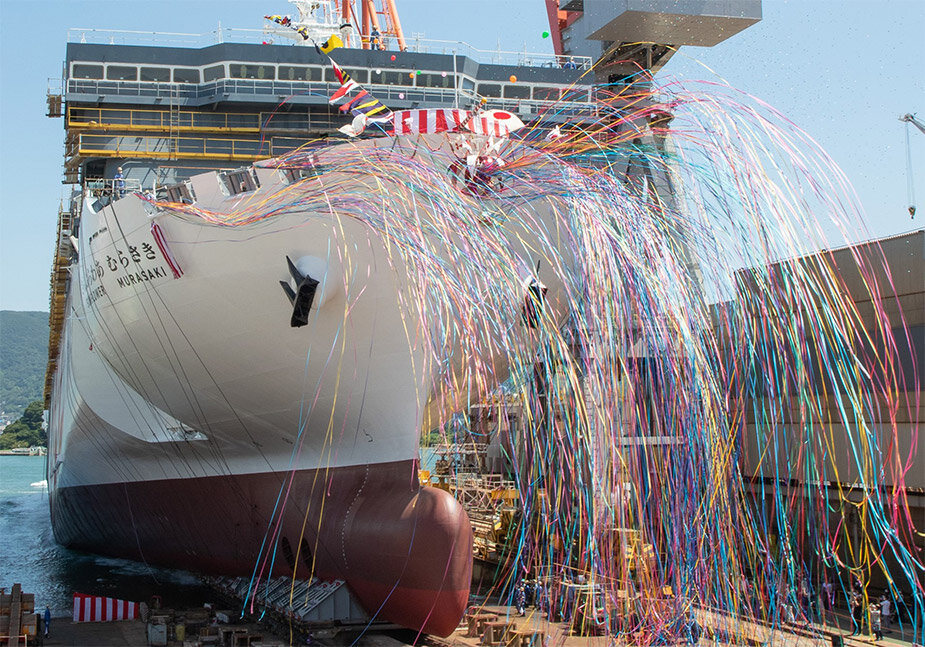Shipping giant MOL said on Tuesday that Mitsubishi Shipbuilding has floated out Japan’s second LNG-fueled ferry, Sunflower Murasaki.
Mitsubishi Shipbuilding, a part of Mitsubishi Heavy Industries, held the launching and naming ceremony at MHI’s Enoura Plant, according to a statement by MOL.
This follows the launching of the first LNG-powered vessel, Sunflower Kurenai, in March this year.
Back in 2019, MOL ordered these two LNG ferries, Sunflower Kurenai and Sunflower Murasaki, at Mitsubishi Shipbuilding.
MOL’s firm Ferry Sunflower will use both of these vessels on its Osaka-Beppu route.
According to MOL, the first ferry should enter service in January 2023, followed by the second ship in March the same year.
Both of the LNG-powered ships will replace older vessel serving the route.
Compared to the vessels in service, the new ferries would offer “greater transport capacity and convenience” for both cargo and passenger transport, MOL said.
Besides these two ships, MOL placed an order at compatriot shipbuilder Naikai Zosen for two additional LNG ferries.
The 199.4 meters long LNG-powered ferries will join its unit MOL Ferry in 2025.
Besides these ferries, MOL recently ordered six large LNG-powered vessels at yards in China, as part of its plans to have 90 LNG-fueled ships by 2030.
It signed a deal with CSSC’s Qingdao Beihai Shipbuilding for the construction of four 210,000-dwt LNG-powered Capesize bulkers.
The firm also concluded a shipbuilding contract with Japan’s Kawasaki Heavy Industries for two 309,000-dwt LNG-fueled very large crude carriers.

